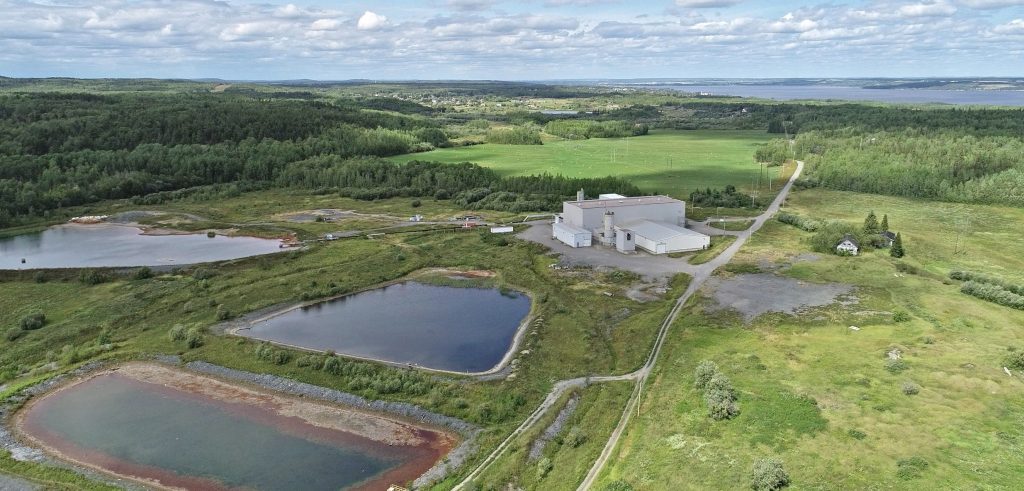COBALT: Feasibility shows strong economics for First Cobalt refinery reboot


 First Cobalt's refinery near Cobalt, Ont. Credit: First Cobalt[/caption]
First Cobalt's refinery near Cobalt, Ont. Credit: First Cobalt[/caption]
TORONTO – A feasibility study looking at an expansion of First Cobalt's refinery in Ontario shows that with a capital investment of US$56 million, the past-producing facility could produce nearly 25,000 tonnes of cobalt sulphate annually – representing 5% of the global production of refined cobalt.
The refinery would be North America's only supplier of cobalt sulphate, a key component in electric vehicle batteries.
The 12 t/d hydrometallurgical cobalt refinery near Cobalt, Ont., produced cobalt carbonate, as well as nickel carbonate and silver precipitate between 1996 and 2015, and remains permitted.
The study, which uses a cobalt price of US$25 per lb., looks at bringing the facility back into production, expanding it to 55 t/d, and adapting it to produce cobalt sulphate.
Using a discount rate of 8%, the study estimates an after-tax net present value of US$139 million and an internal rate of return of 53%. Payback would be achieved in 1.8 years. The study assesses economics over an initial 11-year period, but the design capacity for the facility's first phase dry-stack tailings area is 17 years.
The plant would process 18,369 tonnes of cobalt hydroxide at a grade of 30% cobalt, relying on third-party feedstock.
“This is an important milestone in our efforts to disrupt the existing cobalt supply chain," said First Cobalt president and CEO Trent Mell in a release. "The study shows strong asset-level economics that position the refinery to be competitive globally and provide attractive investment returns. The outlook for electric vehicles and the push by automakers to develop shorter supply chains creates an excellent opportunity. With most of the world's cobalt refining capacity located in China, there is strong demand for a North American alternative.”
The study estimates operating costs of US$2.72 per lb. of cobalt produced, although that figure does not include the purchase of cobalt hydroxide feed.
Under a partnership framework agreed to with Glencore AG last July, the feed would be provided by Glencore, and sourced from its operations in the Democratic Republic of Congo. First Cobalt would treat the material for an initial term of up to 4.5 years on a tolling basis, and Glencore would provide up to 100% of the capital required to recommission and expand the refinery.
First Cobalt is looking at further improving the economics of the refinery through different technologies or approaches to managing sodium and potentially increasing cobalt recovery from a modelled 93.3% to over 95% through changes in the operation of the SX circuit.
Alongside the feasibility study, the company also completed a prefeasiblity level assessment examining a restart of the facility as a demonstration plant at 12 t/d under existing permits. A few changes to the flow sheet and other plant modifications would be necessary, and a different cobalt alloy feedstock would be used. First Cobalt and Glencore are reviewing the study in hopes of restarting the plant and producing cobalt sulphate for EV battery qualification as early as the fourth quarter of 2020.
The prefeasibillity pegged capital costs for the demonstration plant at US$12.1 million and operating costs at US$6.88 per lb.
For more information, visit: www.firstcobalt.com.
Comments